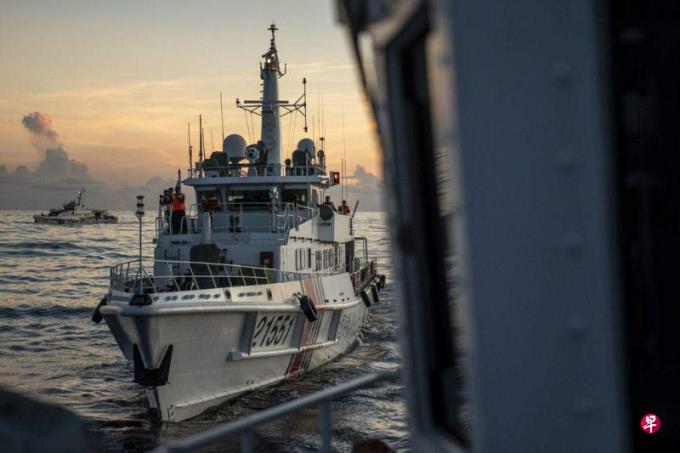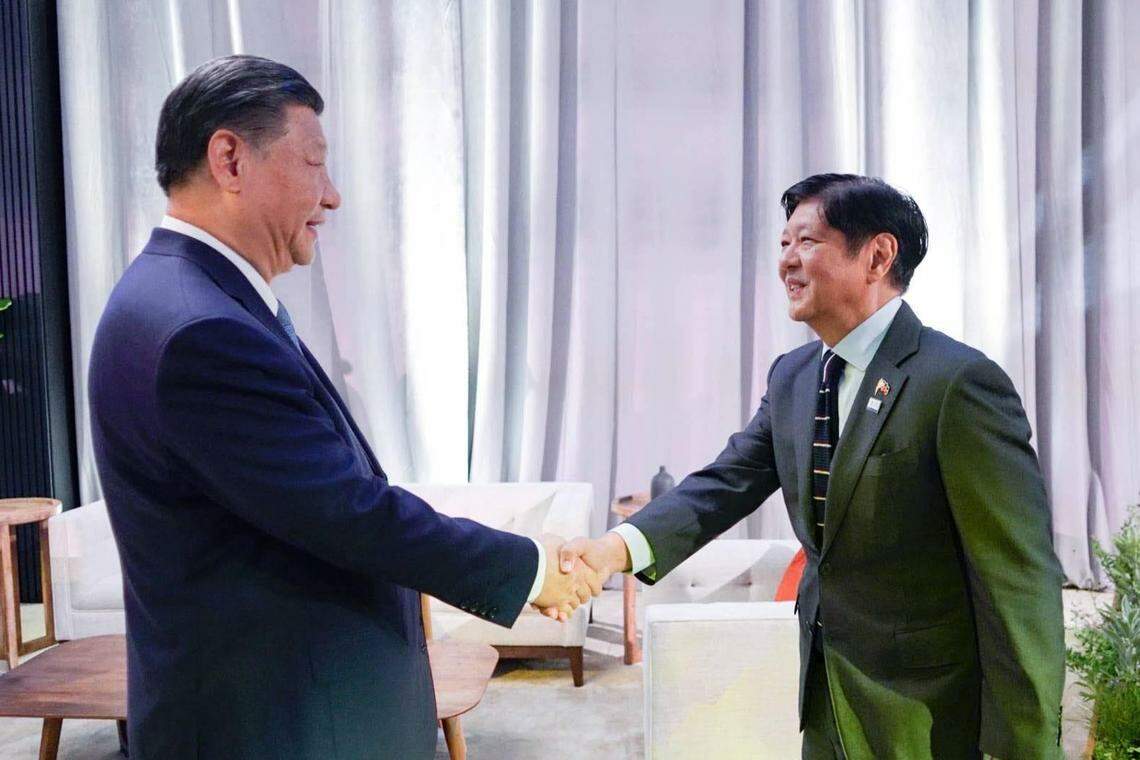
For China's recently adopted a series of strong actions in the South China Sea, scholars analyzed that Beijing is now facing the legalization effect of the South China Sea Arbitration Case, and the conflict with the Philippines in the FilipinosWaiting for pressure, it will continue to maintain the initiative in the region at a lower cost through non -military means.
China released the latest version of the "Standard Map" in late August, reiterating its sovereignty's claims for more than 90%of the South China Sea, which triggered criticism of Malaysia, the Philippines and other countries.After that, The Philippine government accused the Chinese Coast Guard in September in September.There is a floating barrier in the sea with sovereignty disputes in the South China Sea to prevent the Filipino fishermen from entering the sea fishing. The Philippine Coast Guard is ordered to implement the "special action" and demolish the floating barrier set by the Chinese Maritime Police.
When the Philippine President President President Presks Kasco also sought a formulation mechanism when he held an informal talks with Chinese officials in San Francisco in the United States to alleviate the tension of the South China Sea.

Chen Weihua, an associate professor at the Department of Public Safety of the Central Police University of Taiwan, pointed out when he attended the forum organized by the Taiwan Indian Association and the Chinese Communist Party Research Magazine last Thursday (November 16) that Beijing currently faces two major challenges in the South China Sea.The legalization effects of the South China Sea Arbitration Case, and the conflict with the Philippines heated up.
Chen Weihua said that since the announcement of the South China Sea policy statement in 2020, the United States has continued to announce policy reports and government statements to maintain freedom of navigation and require China to stop interfering with ships and aircraft of various countries in the region.At the same time, the United States has also continued to urge the countries and out -of -the -all -domain allies around China to publicly support the results of the arbitration cases.
As for the Philippines, he believes that the Philippines intentionally highlights China's strong behavior in the South China Sea, creates public opinion of the outside world, and then pressures between China and the United States, and forcing the United States to endorse or be willing to send warships to escort.
Chen Weihua believes that when facing these two challenges, Beijing's true concern is that the international direction of public opinion on the legal position of the South China Sea and the cost of implementing compulsory rights protection methods.However, China must respond to nationalism internally, and expressed the sovereignty of the territory to refuse to give up, and under the premise of taking into account the cost of economic and geopolitical costs, it will choose to respond through non -military means such as diplomatic, economy, and gray areas.
He pointed out that in the conflict of Ayunjin Reef, China took the initiative to release a response from the video to the maritime police and diplomatic speech system to see the accumulated experience of China in the past few months, hoping to recapture the South China Sea Line LineThe initiative of information.
Chen Weihua pointed out that after several months of fighting, China and the Philippines have accumulated interactive experience in conflict, and this model may still be copied in the future.Considering that China cannot abandon the bottom line of territorial sovereignty, the United States and the Philippines can only focus on improving China's rights protection costs, but this will also exacerbate the risk of misjudgment and conflict between the two parties.
He believes that the Bayeng government clearly understands that at this stage, it is still necessary to rebuild a bilateral strategic -level dialogue through face -to -face diplomatic consultations, so that China is willing to recover the reputation and image of damaged in the South China Sea, and then seek a bilateral and bilateral andA acceptable folding space between multiple parties.
Wu Guishan, a researcher at the China Institute of Vietnam, who attended the same forum, said that the Boyi goals of China and the United States in the South China Sea are different.The United States is not a sovereign dispute, but to maintain the regional dominant position by maintaining the "stability" of the South China Sea; China tries to achieve the establishment of maritime power through controlling the South China Sea, frequent military exercises and nourishing behavior.
He believes that in the context of the increasingly fierce competition between China and the United States, the enhancement of China's marine strength and the militaryization of the South China Island Reef will rewrite regional security rules. He is also worried that China's rise will increase regional peace.Determination.
Wugui Mountain pointed out that this not only makes the Asianan country's views on China, but also falls into the dilemma of the dilemma when facing the two major powers of China and the United States.
But he also mentioned that because China and the United States hope to win Ah'an, it means that the status of the Asian country in the two strongest and stronger status has continued to improve.
Wu Guishan pointed out that Ya'an can take advantage of strengthening its own position on the South China Sea, that is, calling on the value and controlling role of international law in regional marine disputes.position.
Therefore, he believes that China and the United States in the South China Sea are conducive to Asia's fine security to improve its military, economic, and marine governance capabilities in responding to regional issues.



